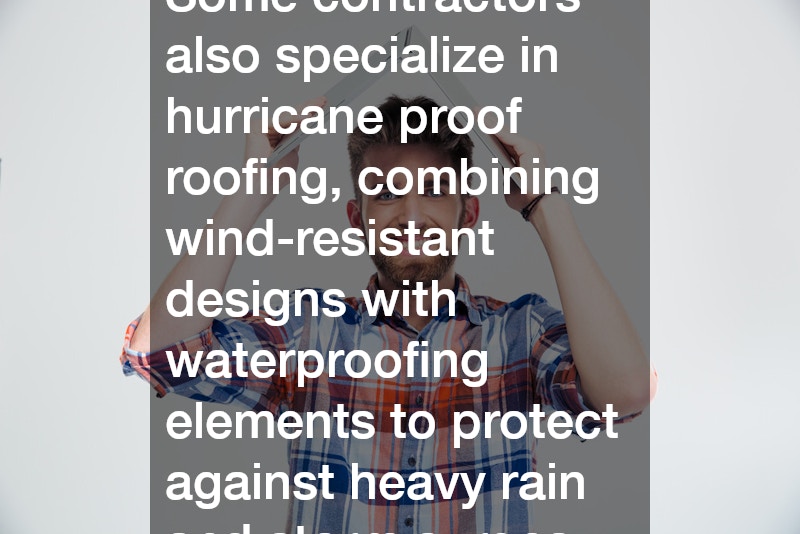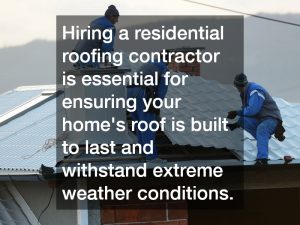
Hiring a residential roofing contractor is essential for ensuring your home’s roof is built to last and withstand extreme weather conditions. In areas prone to severe storms, it’s crucial to incorporate features like roofing straps and roof tie downs to strengthen the roof’s connection to the structure. These components help prevent the roof from lifting during high winds, minimizing the risk of damage.
For homes in hurricane-prone regions, installing a hurricane proof roof design offers extra peace of mind. This type of design involves using reinforced materials, such as metal panels or impact-resistant shingles, along with advanced anchoring systems. Roofing straps and roof tie downs play a vital role in this design by securing the roof to the walls, distributing wind loads, and reducing stress on the structure.
Professional residential roofing contractors can recommend the best materials and techniques for your area, ensuring your roof meets local building codes and withstands extreme weather. Some contractors also specialize in hurricane proof roofing, combining wind-resistant designs with waterproofing elements to protect against heavy rain and storm surges. By investing in a well-designed, hurricane resistant roof, you can safeguard your home, reduce potential repair costs, and protect your family with a hurricane proof roof design.

Try as we might, there seems to be no avoiding hurricanes. Every year they make landfall in the United States, causing damage and displacing people from their homes. Close to seven hurricanes every four years strike the United States.
With the landfall of Hurricane Harvey, nearly 13 million people were affected, over 130,000 homes were damaged and the flooding caused damage to cars, businesses and other things. The economic impact from Harvey is estimated at more than $150 billion.
During the 20th century, 158 hurricanes hit the United States with 57 of them hitting Florida and 26 hitting Texas. In 2017, 10 storms in a row became hurricanes, a feat that hasn’t happened since 1893.
When hurricane season comes, hurricane ready homes can help residents weather the strong storms and hopefully stay safer. Here are some tips for residents to turn their houses into hurricane ready homes.
- Protect from flood damage: Floods are one of the most common natural disasters and where there are hurricanes, there’s almost certainly heavy flooding. When a hurricane hits, the chances that a home will be susceptible to flood damage is fairly high.
To prevent or curtail flood damage, try using sandbags to help create a barrier. It’s recommended that the sandbags be at least two feet high. When it comes to your car, try to park it on higher ground rather than just leaving it in the driveway or in the garage.
Taking steps to prevent flooding doesn’t necessarily mean that your home will be immune to flood when and if it happens. Inside the home, consider unplugging electronics and appliances. Leaving them plugged in leaves you open to a risk of electrocution if flooding does occur.
- Secure everything: While your patio furniture looks nice on the back porch on an average summer day, failing to secure it during hurricane weather leaves it open to blowing away or worse, slamming into your home at high speeds. Hurricane ready homes are better protected if loose objects are secured and the same can be said for any sort of debris around your property. The last thing you need is loose branches or plants hitting the side of the house in a storm.
- Manage appliances: As previously mentioned, it’s a good idea to unplug electronics and appliances. A downed electrical pole can cause a power surge, which can do some serious damage to your home appliances. For things that can’t be unplugged, surge protectors are a good preventative to have. They will help protect appliances such as refrigerators and dishwashers from surges.
- Know what you have: If you have to evacuate during a hurricane, you won’t be able to take everything you own with you. Even when you come back, some of your belongings may be damaged. To make your home even more hurricane-ready, create a home inventory list of what you have. That way if you need to replace anything you know exactly what it is. Replacing things after weather damage is always tough, but home inventory apps can make the process a little easier.
- Shut up the windows and doors: An important part of transforming houses into hurricane ready homes is securing windows and doors. These are two of the most vulnerable parts of a house during a storm and boarding them up secures them and can help guard against hurricane damage.
Since windows and doors are so vulnerable, sound proof sliding glass doors or hurricane proof doors can be beneficial for protection against hurricanes and could save you some trouble trying to board everything up. Sound proof sliding glass doors are made with high impact glass, meaning they can withstand the impact of hurricanes. Sound proof sliding glass doors utilize laminated or insulated laminated glass to stand up to hurricanes. Window and door systems that have an impact glazing system of +105/-130 can withstand hurricane force winds that can travel more than 100 mph.
If you’re in the market for high impact windows or impact glass doors, read this before you buy anything. Soundproof Windows Inc offers a look at some of the advantages of sound proof sliding glass doors. If a hurricane is on the way, use this guide to keep you and your family members safe.
